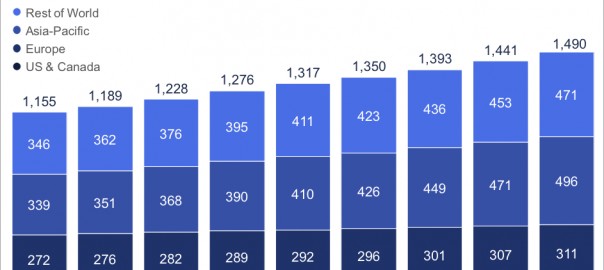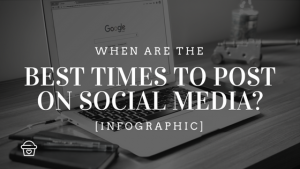
Social media seems to have been with us forever.
In fact Facebook has turned ten!…that is an eternity in tech. Social media is so old that the fun police have turned up and are threatening to ruin the party.
The no rules and the dope smoking, beer swilling social media parties have started moving into the board room. The swinging 60′s of social have started to be invaded by the serious suits.
The politicians are now even pushing for social media privacy and protection laws. The lawyers have also joined. So don’t post anything too controversial on Facebook.
You may get sued. It is becoming legislated and legal.
At the big end of tech town, companies like IBM and Oracle are investing big bucks and building Enterprise software for social. It is now all about process, management and control.
How boring is that?
But in 2008 when I joined Facebook and Twitter, it was the wild west. There were no textbooks for social and people just leapt on and started playing. Tweeting with someone on the other side of the world who you didn’t know was so cool.
But questions were asked
When there are no rules then the general population feels a bit uncomfortable and starts asking for directions. The command and control economy is still embedded in our psyche.
How many times should I tweet? Is posting on Facebook once a day enough? Should I start a blog or is micro-blogging enough? Can I use my Facebook page like a website?
But maybe it’s time for social to grow up and develop some rules and guidelines and become accountable.
Is that bad?
No. It is time for the social zealots to become more responsible and the return on investment question is not to be shouted down but to be taken on board. It is not just about engagement. That is just the start of the conversation. Social media needs to convert engagement and trust into real leads and sales.
Is it a tad more boring?
Maybe.
There are some new social toys
But there is a still a lot of fun to be had for people who love shiny new toys.
This year has seen the emergence of some exciting new social platforms that remind me of the time I discovered social for the first time. Meerkat and Periscope have introduced us to live video streaming.
When I first used Periscope to observe someone in London streaming their walk to work while chatting it was was bizarre, confronting and very voyeuristic.
Just last week I joined Blab and watched as 4 social media pundits held a late night chat fest while sipping some wine and downing some cans of beer. This was done with 200 people on the virtual reality sidelines cheering, commenting and asking questions.
Conversations and questions centred around how engaging the live global video interaction was and would Blab rule in this connected world.
This engaged global connectedness that social brought us is still intoxicating.
But will these new platforms be game changers?
This question is often asked.
But at the end of the day it comes down to asking some key questions that need to be raised without wearing beer goggles.
- Could they drive more traffic? Not sure at this stage but looks like it may not be worth all the focus, time and the effort for achieving that goal.
- Will they provide more engagement with your prospects and customers? I think the answer to that is a big yes.
- Is it worth the time? Maybe and maybe not. That then begs the question of where and how should my time and resources be best spent.
- Can they make more money for your brand? That is maybe not what a social media purist wants to hear but the CEO will want to know.
The Pareto principle needs to be applied here.
If 20% of your efforts produce 80% of the results then being distracted by shiny new toys could be a tyre spinning exercise. Fun for sure but not a good use of resources.
At the end of the day they will be useful tools to consider for your marketing in the midst of many others.
The growth rates were astronomical
The growth rates at the beginning of the social media revolution were astronomical. Twitter, Facebook and Instagram and other social networks grew at rates that hadn’t been seen before in a web world.
That pace has slowed and it is much more organic in 2015.
That is except for some of the new kids on the block such as Periscope, Meerkat and Blab.
One significant driver of social media growth and engagement in 2015 is the impact of smartphones. This is due in part to the populations in developing countries using mobiles as their primary internet device.
So what are the social media facts as we approach the end of 2015.
Facebook facts
Facebook still rules the social media world and is consolidating its dominance on a lot of levels. Sheer size, social advertising spend and dominating the mobile screen are just a few.
Here are some Facebook facts:
- Facebook has over 1.49 billion monthly active users
- Revenue hit $ 4.042 billion for the last quarter (second quarter 2015)
- For the the first time Facebook had 1 billion users log on in one day
- Mobile-only monthly active users have now reached 655 million
- Mobile advertising revenue is now at 76% of total earnings

Twitter facts
Twitter was always an accidental social network. It was never intended to be social. It was originally designed as a private internal messaging service for a podcasting company.
It is a technology experiment that escaped.
- 316 million monthly users
- 500 million tweets per day
- 80% of active users are on mobile
- 4,100 employees
- 50% of the employees are engineers
One other little known Twitter fact is that if you tweet more you will get more followers.

Source: Agorapulse
YouTube facts
YouTube has been with us since 2004. In 2005 it was acquired by Google for $ 1.5 billion. This is when Facebook got started. Facebook is now on a mission to replace YouTube as the largest video platform on the planet.
Here are some YouTube facts to ponder.
- Over 1 billion users visit YouTube every day
- Over 100 hours of video are uploaded every minute
- 25% of views are from mobile devices
- 6 billion hours of video are watched every month
- More content is uploaded in 60 days on YouTube than all 3 major U.S. Networks generated in the last 60 years

Source: Internetmarketingdojo.com
LinkedIn facts
LinkedIn was a little slow to the content marketing party and only introduced a publishing feature for all its members in 2014. A new tool called LinkedIn Elevate is being trialled to help companies leverage their content by making it easy for companies to increase sharing of their content via their employees.
We will see how that pans out in powering companies to build more engagement. In the meantime here are some of the latest LinkedIn facts via Linkedin.
- 39 million students and recent college graduates are on LinkedIn
- 380 million users
- Total annual revenue is 0ver $ 2.8 billion
- Add 2 new members per second
- 8,700 employees
Instagram facts
Instagram is still one of the fastest growing social media properties. The reason. It’s mobile and visual which are two of the fastest emerging trends in social media marketing.
It is not just for images and photos and individuals can also post 15 second videos and has recently removed its ban on rectangular images.
Here are some Instagram facts.
- Over 400 million users
- It is estimated that Instagram will bring in $ 595 million in mobile ad revenues in 2015
- Mobile ad revenues are projected to surpass Google and Twitter by 2017 at $ 2.81 billion
- It is estimated that 9ver 27% of the U.S. population use Instagram in 2015
- 90% of Instagram users are younger than 35

Pinterest facts
Pinterest has been one of the most female dominated social networks since its inception. That has continued. Many of its images are about fashion (4.5 billion pins), recipes (1.7 billion) and home related images.
- 73 million global users
- 85% of Pinterest users are female
- 53 million monthly unique user in the USA
- There re 1 billion Pinterest boards
- 50 billion Pinterest pins
The new social toys
Despite social media maturing there are still some new toys that are filling niches and also leveraging emerging technologies and faster data networks.
Here is a quick look at some of the fast emerging social media platforms. What isn’t surprising is that they are mobile, video centric and live. It is all about engagement.
They are live streaming video apps that drive a lot of engagement and make sharing fun and highly engaging.

Meerkat fact
Meerkat allows you to broadcast live video from your mobile. This app launched in 2012 but broke through into public consciousness at SXSW in March, 2015. It then had a direct competitor launched a few weeks later.
The latest facts about the app that are hard to get due to its non-disclosure:
- It had an estimated 2 million users in May, 2015
Periscope facts
Periscope was Twitter’s answer to Meerkat and shortly after launching it also cut off Meerkats access to it’s API and service that made its growth trajectory much more muted.
- It announced on August 2 that it had reached 10 million accounts just 4 months after launch
- 40 years of video are being watched every day
- Daily active users – approximately 2 million
Blab fact
Blab only launched in April.
It allows up to 4 users to run a live video streaming conference that can be watched from the sidelines by others. The best way to describe it is Google+ Hangout for mobiles. It can be recored for later use and is a lot of fun. It feels like a mobile stadium. A few people on the stage and onlookers sharing feedback via questions and chatting visibly via text on the side column.
Signing up to Blab.im from your desktop is as simple as using your Twitter account. At this stage the mobile app is only available for the iPhone.
A lot of the top bloggers and social media early adopters have been hosting “Blabs” over the past few weeks. It’s fun and highly engaging.
An interesting Blab fact: Blab is a new start-up launched by the founders of Bebo. Bebo was a social network started in 2005 by Michael and Xochi Birch and bought by AOL in 2008 for $ 850 millon when it had reached 45 million users. It went into decline and was bought back by the couple for $ 1 million in 2013.
Digital & Social Articles on Business 2 Community(135)








